506 Search Results Found For : "demographic dividend"
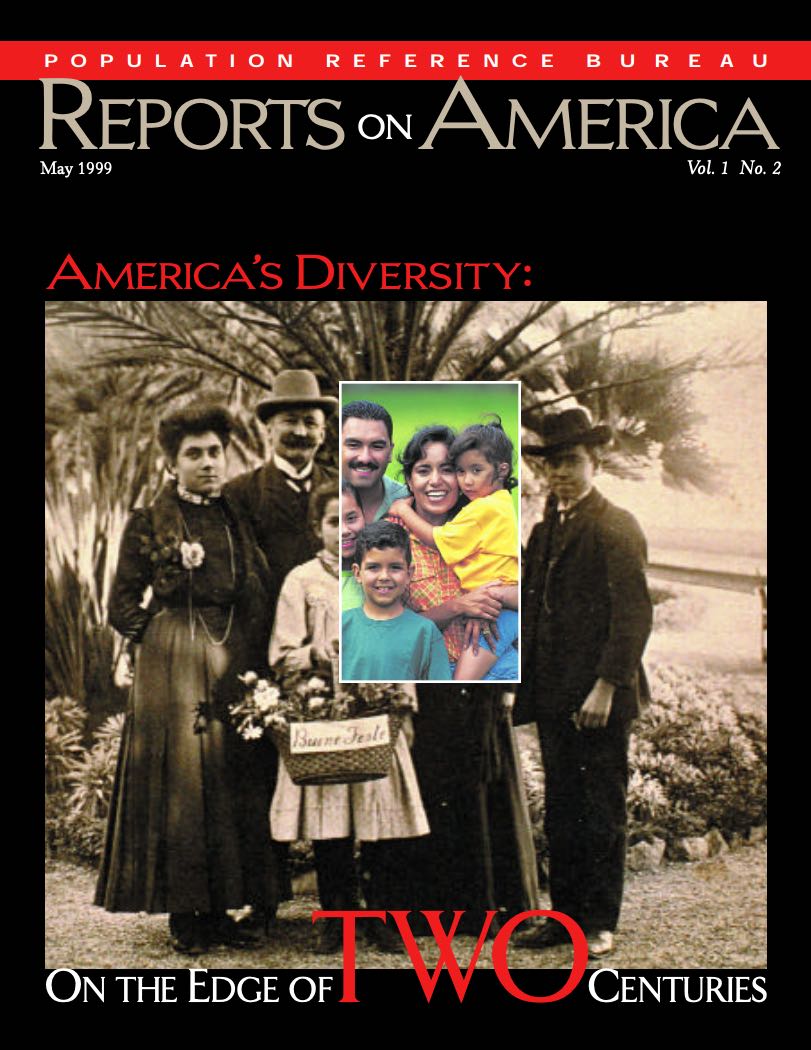
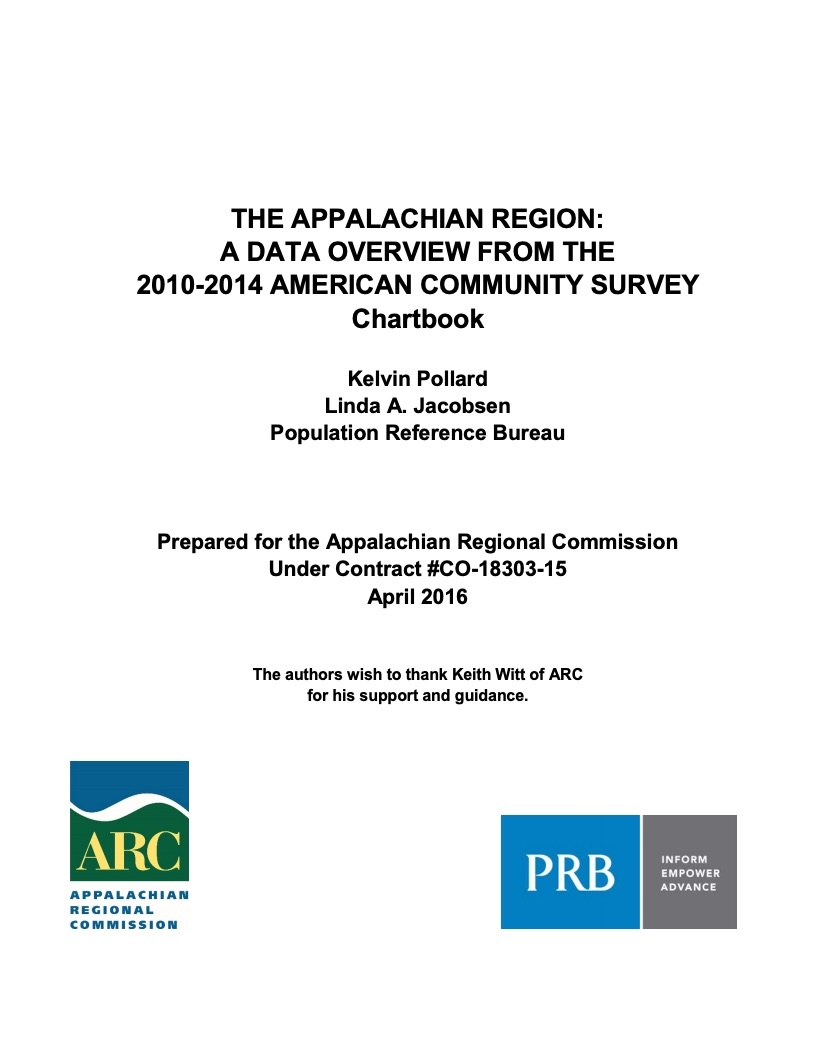
Project: Appalachia: Demographic and Socioeconomic Trends
PRB Appalachia Report Examines Jobs, Degrees
(2015) Appalachia's residents in their prime working years are less likely to be in the labor force or to hold college degrees than the U.S. population as a whole, but these and other demographic, health, and socioeconomic patterns vary widely within the region.
Family, Friends Help Shape Childbearing Choices
(2014) Worldwide, childbearing decisions may be more of a group effort than we realized.
Spread of HIV Is Slowing in Cambodia
(2003) In only 20 years, HIV/AIDS has developed into the most devastating epidemic the world has faced. Forty million individuals worldwide live with HIV/AIDS and millions more individuals, families, children, and communities affected by HIV/AIDS face multiple challenges.1 Yet while many countries continue to experience increasing HIV prevalence rates, Cambodia appears to be making progress.
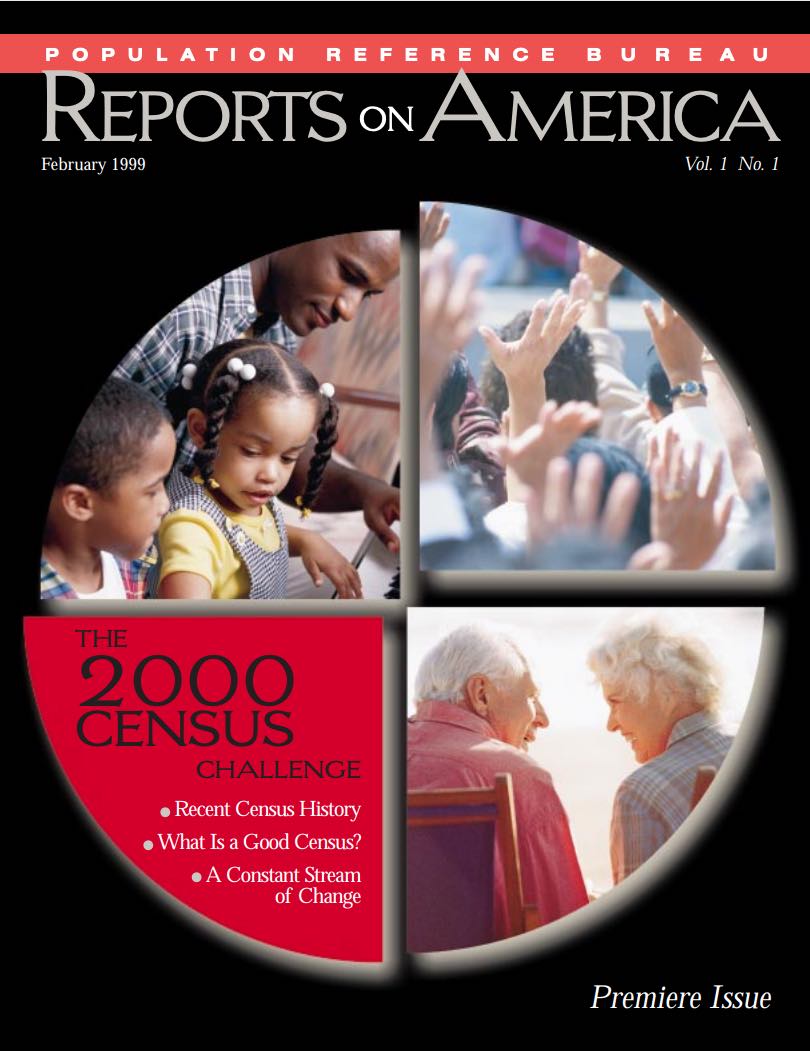
Reports on America, vol.1, no. 1. The 2000 Census Challenge
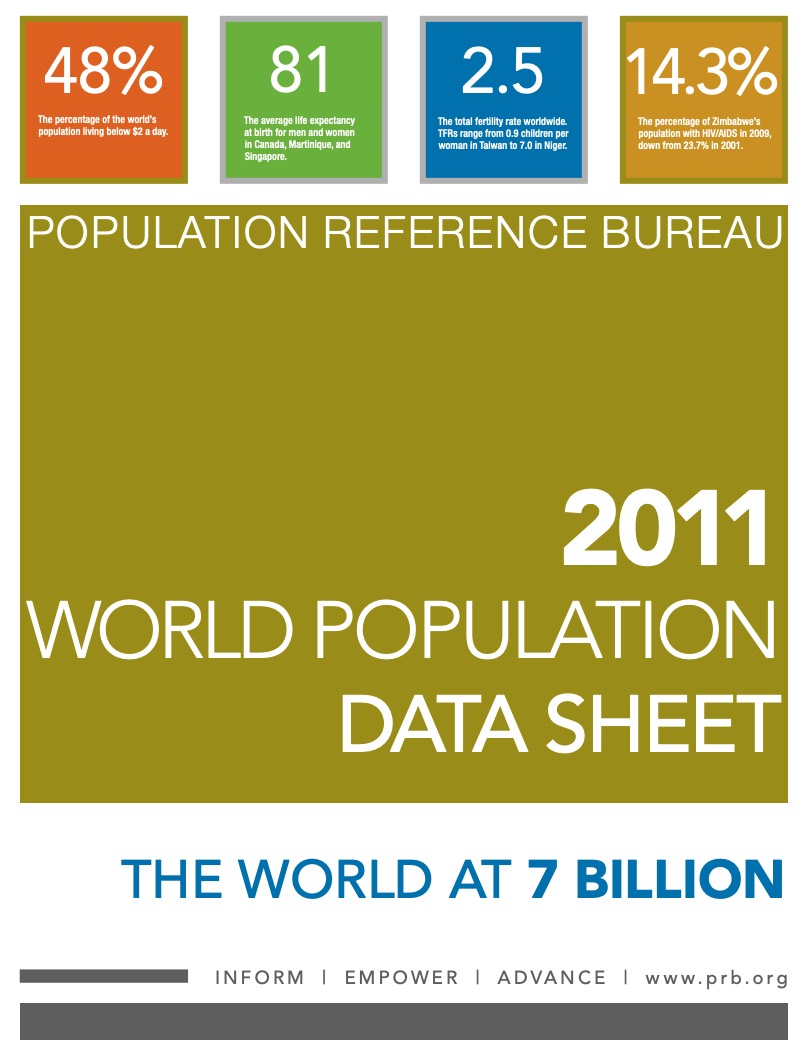
2011 World Population Data Sheet (English-PDF)
(2011) Global population will reach 7 billion later in 2011, just 12 years after reaching 6 billion in 1999.
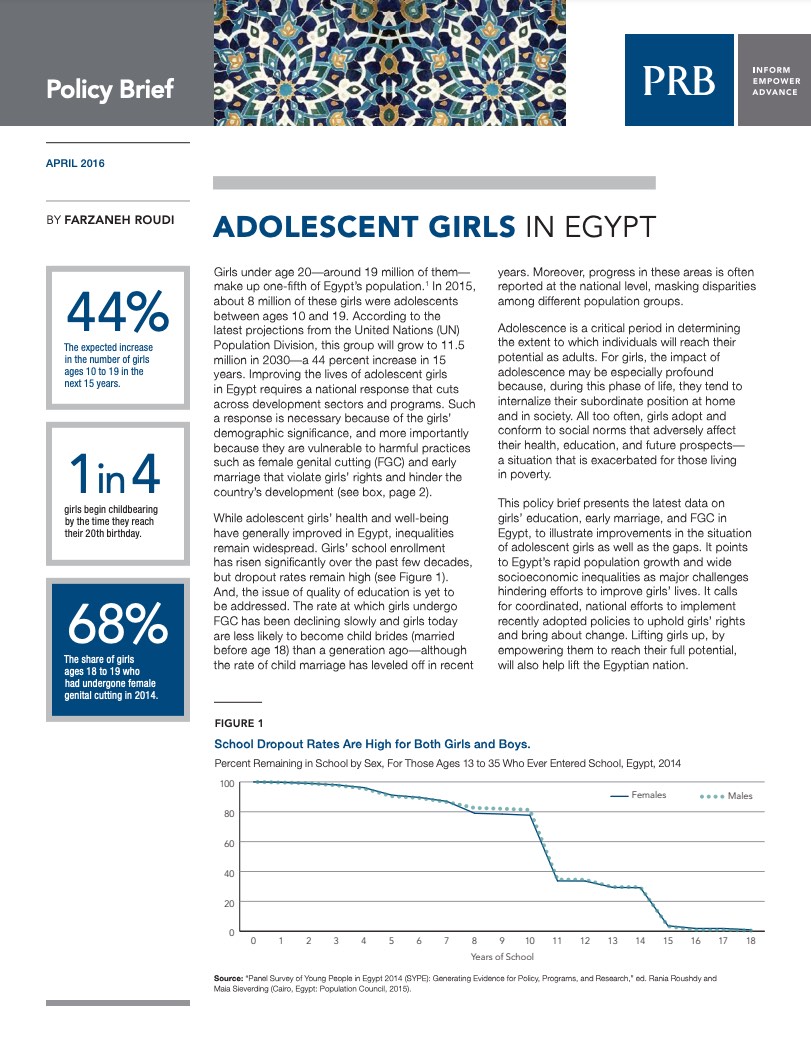
Policy Brief. Adolescent Girls in Egypt
(2016) In Egypt, harmful practices that violate girl's rights are hindering the country's development and ignoring the demographic significance of adolescent girls in the country.
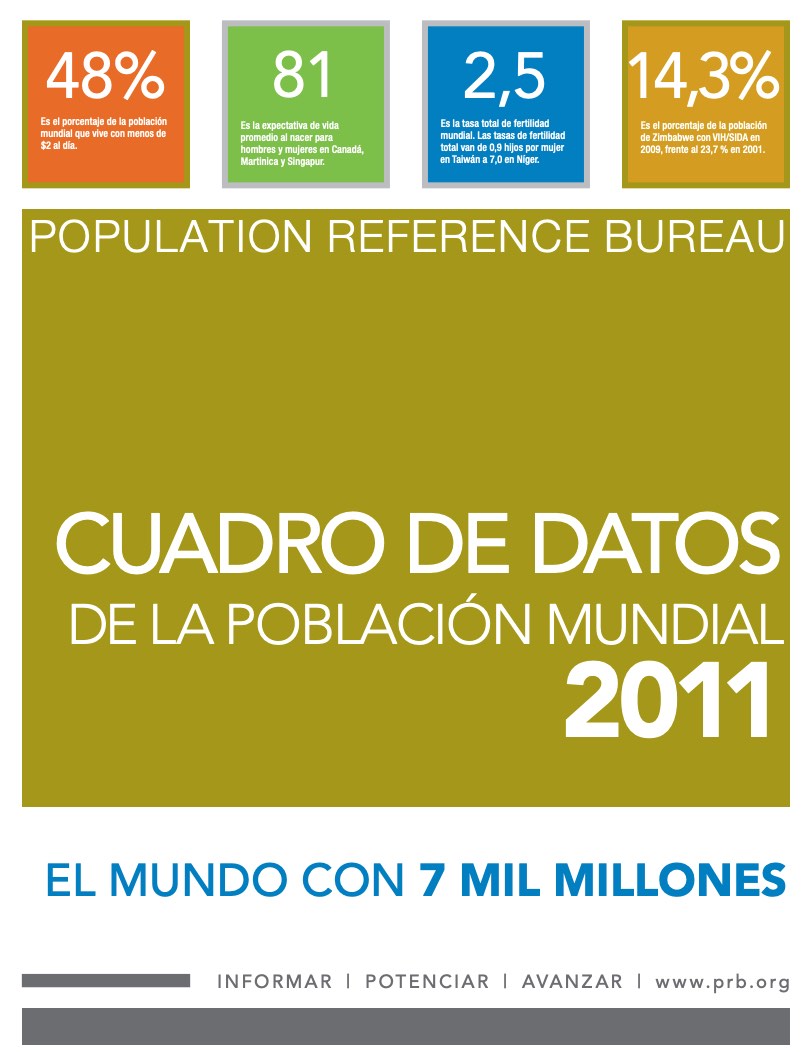
Cuadro de datos de la población mundial 2011 (PDF)
(2011) Global population will reach 7 billion later in 2011, just 12 years after reaching 6 billion in 1999.

